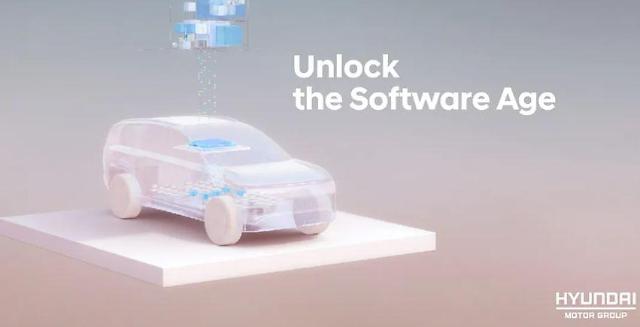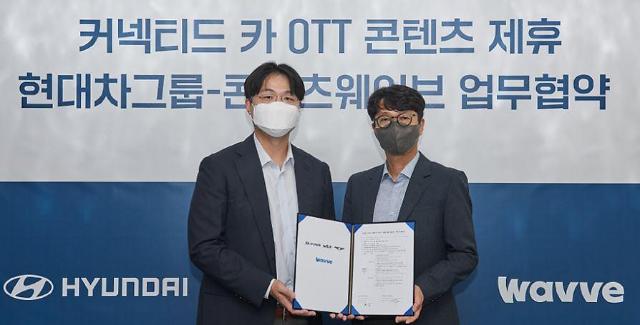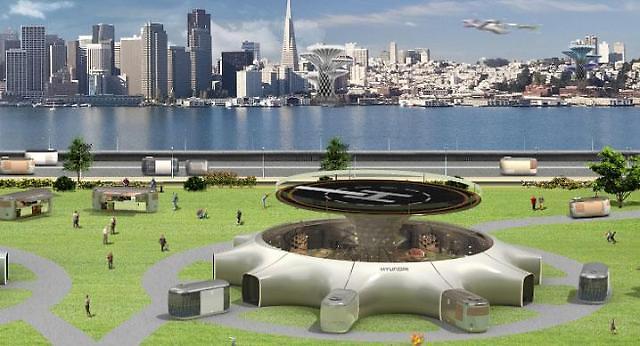
[Courtesy of Hyundai Motor Group]
All models, including those already purchased, will be applied with an over-the-air (OTA) wireless update solution so that customers can upgrade vehicle functions, including safety, convenience, connectivity, security, and driving performance without visiting service centers. By 2030, the group proposed an injection of 18 trillion won ($12.6 billion) into the establishment of a new global software center, software capabilities, and the development of software-defined vehicles.
Connected car data will network with future mobility solutions, including purpose-built vehicles (PBVs), advanced air mobility (AAM), robotaxis and robots. By establishing a new data platform, Hyundai said that innovative services would be provided through connecting and processing the various data generated throughout the car life cycle, as well as promoting the creation of an open ecosystem in partnership with diverse industries such as logistics and accommodation.
Hyundai is a member of UAM Team Korea, a public-private consultative body that will commercialize drone taxis in 2025. Urban air mobility (UAM) is an ecosystem involving flying passenger vehicles in urban areas. Advanced air mobility (AAM) builds upon the UAM concept by incorporating use cases not specific to operations in urban environments.
"Today, Hyundai Motor Group has revealed the technology concepts, strategies, and future scenarios related to software-defined vehicles that will underpin the core of future mobility," said Park Chung-kook, who heads the group's research and development division.
In 2023, the group will offer feature-on-demand (FoD) services, allowing customers to select and purchase functions and features that meet their needs and tastes and create vehicles that best match their lifestyles. A shared hardware and software platform will significantly reduce the time required for all production processes and enables components to be shared across different vehicle segments, leading to more efficient vehicle development and greater cost reductions.
Profitability will be improved by shortening vehicle development time and reducing costs through platform standardization. New platforms will be created under the group's integrated modular architecture (IMA) system. In 2025, the group will present vehicles with two platform types -- a passenger electric vehicle platform called "eM" and eS, an exclusive platform for PBVs. The integrated modular architecture will facilitate the standardization and modularization of key electric vehicle components.




